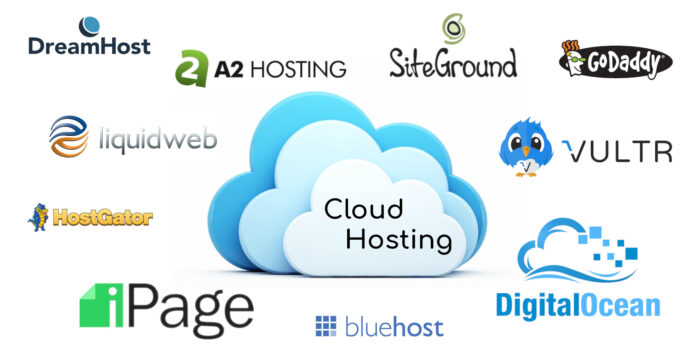Choosing the Right Hosting Plan: A Comprehensive Guide
Selecting the perfect hosting plan is a critical decision when building a website. It directly affects the speed, reliability, and manageability of your site. In this guide, we will explore the various hosting options available and provide valuable tips to help you choose the best plan and provider for your specific needs.
By the end of this article, you will have a clear understanding of what factors to consider in a hosting plan and how to make an informed hosting decision. Here’s what we’ll cover:
- Best Web Hosting in India: Discover top web hosting providers in India that offer excellent services and cater to your specific requirements.
- Beginner’s Guide to Types of Hosting Plans: Familiarize yourself with different types of hosting plans, such as shared hosting, VPS hosting, dedicated hosting, and more. Understand their features and suitability for your website.
- What to Look for in Web Hosting: Learn the key factors to consider when evaluating hosting plans, including performance, reliability, security, customer support, scalability, and pricing.
- Tips for Getting the Most from Shared Hosting: If you opt for shared hosting, maximize its benefits with helpful tips on optimizing performance, handling resource limitations, and ensuring security.
- How to Move Your Website to a New Web Host: If you’re considering switching hosting providers, follow our step-by-step guide to smoothly migrate your website without any downtime or data loss.
- Why Does My Business Need a Website? Understand the importance of having a website for your business, including increased visibility, credibility, customer reach, and opportunities for growth.
- Most Common Questions (FAQs): Find answers to frequently asked questions related to web hosting, empowering you with additional knowledge to make informed decisions.
By following this comprehensive guide, you’ll be well-equipped to choose the perfect hosting plan that meets your website’s requirements and sets the stage for online success.
Top Web Hosting Providers in India
Before we dive into the list of web hosting providers in India, let’s begin by understanding the concept of web hosting.
What is Web Hosting?
Web hosting is a service that enables you to make your website accessible to the world. When you create a website, it consists of various files containing text, images, and other media. These files need to be stored somewhere online for people to view and interact with your site.
This is where web servers come into play. Web servers are managed by web hosting providers, also known as web hosts. They store your website’s files and make them available to visitors. Without a web host, your website wouldn’t be accessible to the public.
Web hosting accounts often come with tools and utilities to simplify website management. While it is possible to operate your own server, it is generally expensive and complex. Therefore, businesses typically opt to rent server space from hosting companies.
These hosting companies operate data centers, which consist of networks of servers located worldwide. For instance, GoDaddy owns data centers globally, allowing them to offer affordable web hosting services compared to other providers.
The significance of web hosting cannot be overstated when it comes to running a website. A reliable web host can enhance your site’s security, speed, and overall user experience. On the other hand, a subpar web hosting provider can result in slow loading times and frequent unavailability, negatively impacting your customers’ experience.
Now, let’s explore some of the best web hosting providers in India that offer excellent services tailored to your specific needs.
GoDaddy – Reliable Web Hosting Provider in India

Check current pricing
GoDaddy is a renowned web hosting provider and one of the largest in the world, catering to over 21 million customers globally. They offer a wide range of hosting plans and services to accommodate the needs of small businesses as well as large corporations.
In 2022, GoDaddy established a Hosting Centre in India, specifically designed to deliver faster loading times and enhanced site security for Indian businesses.
Here are some notable benefits you can expect when choosing GoDaddy as your web hosting provider:
- Excellent Customer Support: GoDaddy takes pride in its award-winning support team, available round-the-clock. Their highly trained GoDaddy Guides provide fast and friendly assistance in multiple languages, including English, Hindi, Tamil, Telugu, and Marathi. You can reach them via live chat, phone, WhatsApp, or email support. Additionally, GoDaddy offers a comprehensive knowledge base and a community forum for additional resources.
- Great Uptime and Server Speed: GoDaddy guarantees an impressive 99.9% uptime, ensuring reliable and secure hosting for your website. They utilize optimized server hardware, resulting in nearly 40% faster overall server response times. GoDaddy’s use of Non-Volatile Memory Express (NVMe) Solid State Drives (SSDs) provides up to a 7x throughput boost for resource-intensive websites. Moreover, their PHP OPCache technology stores PHP scripts in memory, leading to 33% faster server response times. With substantial I/O resources, you can experience faster queries and prevent slow-loading websites.
- Improved Speed, Performance, and Security: Hosting your site with GoDaddy’s India data center can significantly enhance the speed, performance, and security of your website. Faster loading times contribute to lower bounce rates, as visitors are less likely to leave when pages load quickly. It can also improve conversion rates, increasing the number of visitors who request quotes, sign up for newsletters, or make purchases.
- Easy-to-Use Control Panel: GoDaddy offers an intuitive and customizable Control Panel that supports various content management systems (CMS). Managing your website is a breeze with the Control Panel, allowing you to create email accounts, manage DNS records, add subdomains or parked domains, set up FTP accounts, and perform daily backups.
- Robust Security Features: GoDaddy prioritizes website security by complying with industry standards. They provide free malware scanning and removal, daily backups, and DDoS monitoring. Additionally, their Economy, Deluxe, and Ultimate web hosting plans include free SSL certificates to ensure secure data transmission.
Choose GoDaddy as your web hosting provider in India and benefit from their reliable service, exceptional support, improved site speed, and comprehensive security features.
Get Your Business Online and Thriving with GoDaddy
GoDaddy offers a comprehensive suite of tools and services to establish and maintain your online presence. In addition to reliable website hosting, GoDaddy provides the following solutions:
- Domain Names: Get a domain name for your business, and it’s even free when you choose GoDaddy hosting.
- Website and E-commerce Store Builders: Create a modern and mobile-friendly website effortlessly with GoDaddy’s Website Builder. No technical skills are required. For WordPress enthusiasts, GoDaddy offers easy one-click setup and managed e-commerce WordPress hosting with WooCommerce. Enjoy additional benefits like free SSL, your own domain, business email, backups, and a staging site.
- Inexpensive Business Emails: Get professional email addresses for your business that are affordable and free with GoDaddy hosting.
- Website Security Tools: Keep your website safe with GoDaddy’s security tools, including free daily backups with hosting.
- Digital Marketing Tools: Promote your business effectively with GoDaddy’s digital marketing tools, helping you reach your target audience and boost your online visibility.
- Customer Management Tools for Web Developers: GoDaddy provides web developers with free customer management tools to streamline their workflows and enhance client relationships.
Upgrade your hosting plan effortlessly as your business requirements evolve. GoDaddy offers tiered pricing with various features such as storage, bandwidth, disk space, and email accounts, ensuring scalability and flexibility.
With GoDaddy’s 30-day money-back guarantee, you can confidently try their hosting services risk-free. This allows you to swiftly establish an online presence, save time and money in the long run, provide an excellent experience for mobile users, and receive the necessary support to keep your website running smoothly.
Choose GoDaddy as your trusted partner to empower your business and achieve success online.
Bigrock
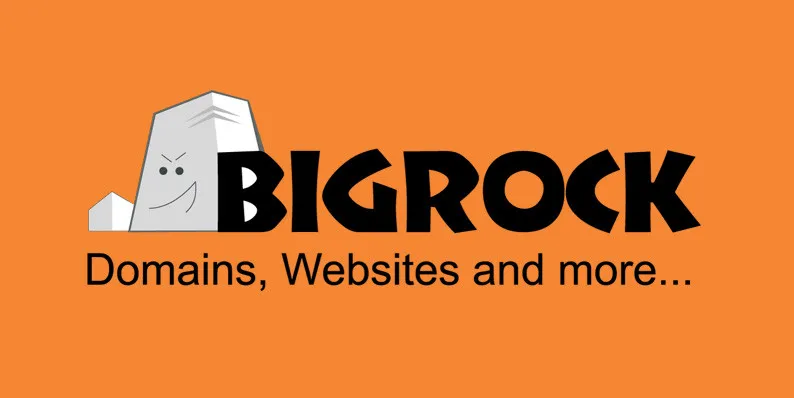
Discover Bigrock’s Current Pricing
Bigrock is a leading web hosting provider in India, offering shared, reseller, and VPS hosting plans.
Their dedicated 24/7 support team is available via email or phone to assist you with any web hosting-related inquiries.
With Bigrock, you can try their services risk-free thanks to their 30-day money-back guarantee, allowing you to evaluate their offerings before committing.
Bluehost
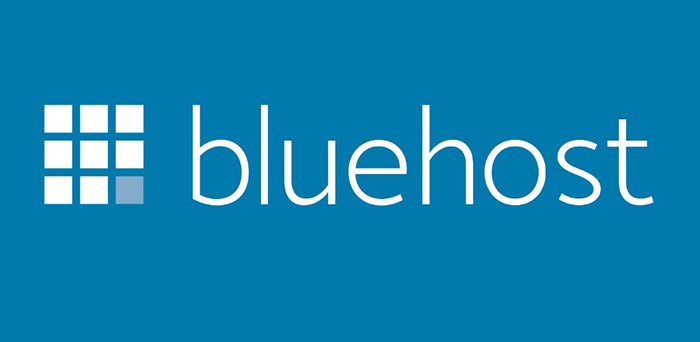
Explore Bluehost’s Current Pricing
Bluehost was founded in 2003 by former Microsoft employees Matt Heaton and Danny Ashworth. Over the years, it has become a global company with offices in the United States, India, and Australia.
Bluehost provides shared, reseller, VPS, and dedicated hosting services with round-the-clock support available via phone or email.
HostGator
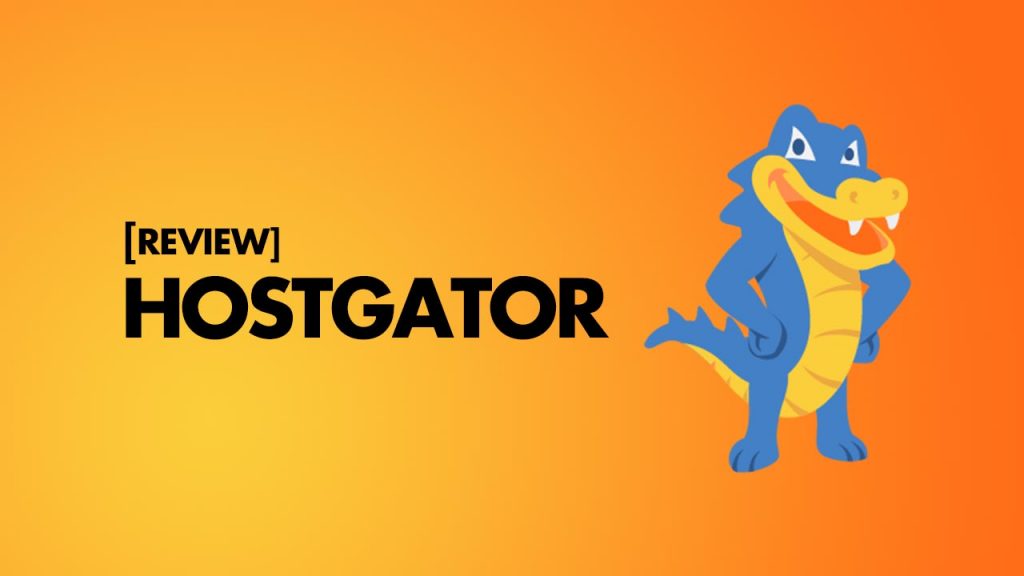
View HostGator’s Current Pricing
HostGator is a well-established web hosting company, serving customers since 2002. It offers a variety of hosting plans to cater to different needs and budgets. With offices in India, the USA, the UK, and Australia, HostGator ensures worldwide coverage.
Their hosting options include shared, VPS, dedicated, and cloud hosting, alongside domain registration and website builder services.
HostGator guarantees a 99.9% uptime, assuring constant accessibility for your website visitors. They prioritize fast page load times through top-notch hardware and data centers located in India.
For customer support, HostGator delivers 24/7 assistance through phone, live chat, and email channels. Additionally, they provide a comprehensive knowledge base and a community forum to address common inquiries.
Hostinger

Discover Hostinger’s Current Pricing
Hostinger India offers a diverse range of hosting plans, including VPS, dedicated, reseller, and more.
With over 15 years of experience, Hostinger also provides additional services such as domain registration and SSL certificates alongside their hosting solutions.
Their shared hosting plans offer different levels of storage and bandwidth, with the Premium Plan offering higher resources for those with greater needs.
Beginner’s Guide to Hosting Plans
Web hosting is not a one-size-fits-all service. The ideal hosting plan depends on factors like the type of website you have and the amount of traffic it receives. Let’s explore the major types of web hosting:
Shared Hosting
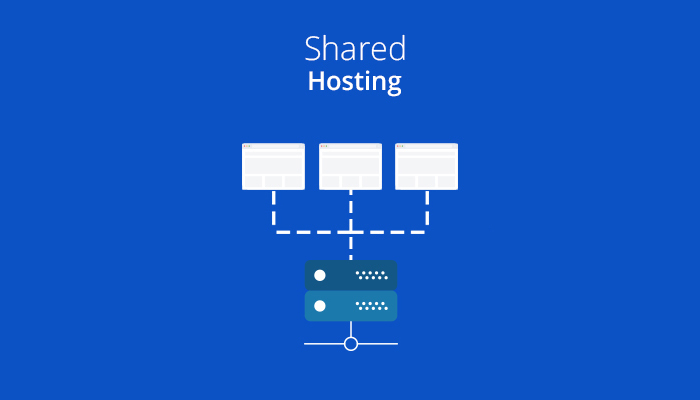
Shared hosting is a popular and cost-effective option, particularly suitable for beginners and websites with low traffic.
In shared hosting, multiple websites share resources on the same server, making it an affordable choice as costs are divided among users.
However, if any website on the shared server experiences a sudden surge in traffic, it may affect the performance of other websites, leading to slower page speeds or downtime. Shared hosting is typically not recommended for websites with over 20,000 monthly visitors.
Who is shared hosting for?
Shared hosting is ideal for bloggers and small business owners starting out. It is budget-friendly, easy to set up, and does not require technical expertise.
Shared hosting pros:
- Cost-effective
- Simple setup
- No technical skills required
- Suitable for bloggers and basic business websites
- Top hosting providers offer daily backups
Shared hosting cons:
- Sharing server resources with other websites
- Potential performance issues during traffic spikes
- Limited control over site performance
If your needs grow, you can easily upgrade your hosting plan.
WordPress Hosting

WordPress is a popular content management system that allows users to build and manage websites without coding skills. It is widely used by both individuals and web developers for creating websites.
Please note that the response has been truncated due to exceeding the character limit.
WordPress Hosting
To make your WordPress website visible to the world, you’ll need to invest in hosting services, as WordPress itself is free. The best hosting plans offer one-click WordPress installation on their servers.
There are two primary types of WordPress hosting:
- Shared WordPress Hosting: This is similar to the shared hosting we discussed earlier. Multiple websites share resources on the same server.
- Managed WordPress Hosting: Specifically designed for WordPress websites, this type of hosting offers additional features. For example, GoDaddy’s fully managed WordPress hosting includes pre-installed extensions, 24-hour malware scanning and removal, free professional email, SSL security certificate, domain name, and easy WooCommerce integration for online selling.
WordPress hosting provides customized features and enhanced security specifically tailored for WordPress sites.
VPS (Virtual Private Server) Hosting
VPS hosting offers independent resources, including RAM and disk space. Unlike shared hosting, a VPS has its own operating system and CPU cores, making it more powerful.
With VPS hosting, you have root access, allowing you to install software and have full control over your site without being affected by other websites on the server.
The main server is divided into multiple virtual servers in VPS hosting, and you can customize these virtual servers to meet your website’s needs.
You also have the flexibility to run custom configurations on your server with root access provided by your VPS hosting plan.
VPS Hosting

VPS hosting is ideal for medium to large-sized businesses that require continuous website availability without the cost of a dedicated server. It’s also suitable for websites with large media files, such as videos and images.
Pros of VPS hosting:
- Dedicated server resources
- Customizable server configurations
- Higher uptime rates and faster loading speeds
- More affordable than dedicated hosting
Cons of VPS hosting:
- Sharing the main server with other websites
- Requires technical skills for setup
Dedicated Hosting
Dedicated hosting is the most expensive option, best suited for large companies and high-traffic websites. It offers complete control over the server, allowing you to install any necessary software or add-ons.
Pros of dedicated hosting:
- Full control over the server
- Highest level of security
- Fast load times and uptime
Cons of dedicated hosting:
- Most expensive hosting option
- Requires advanced technical skills for management
Cloud Hosting
Cloud hosting is a modern hosting solution that stores website files on remote servers in multiple data centers. It offers enhanced security and better uptime compared to traditional shared hosting.
Pros of cloud hosting:
- High level of security
- Scalability of resources
- Low unexpected downtime
Cons of cloud hosting:
- Variable pricing structure
- Limited control compared to VPS or dedicated hosting
When to Choose Cloud Hosting:
Cloud hosting is suitable for rapidly growing companies with high volumes of unpredictable traffic and fluctuating resource demands. Websites with more than 50,000 monthly visits can also consider cloud hosting as a cost-effective alternative to VPS hosting.
What to Look for in Web Hosting:
When selecting a web hosting provider, consider the following factors:
- Uptime: Choose a provider with a strong track record for uptime, preferably with a guarantee of at least 99.9% uptime.
- Reliability: Ensure that the hosting provider is reliable and can deliver consistent performance.
- Security: Look for advanced security measures to protect your website and data.
- Scalability: Determine if the hosting provider offers flexible scalability options to accommodate your future needs.
- Support: Consider the availability and responsiveness of customer support for technical assistance.
Choosing the right web hosting service requires careful consideration of these factors to ensure the best fit for your website’s needs.
Fast Page Loading:
The speed at which your website loads is crucial for user experience, SEO, and conversion rates. Slow-loading sites can lead to visitor abandonment. Aim for fast-loading times to ensure easy access to information. If your target audience is in India, consider hosting providers with data centers there for faster loading speeds.
Scalability:
Consider the ability to scale resources as your business grows. Look at the number of users or pages the web host can handle during peak times. Disk space is also important, especially if you plan to use video or audio files on your site. Choose a hosting company that offers high availability and redundancy to ensure uninterrupted service.
Security:
Select a web hosting provider that prioritizes security. Your website likely contains sensitive information, such as personal data or confidential business documents. Look for features like SSL certificates and regular backups to protect against data breaches. SSL certification enhances trust and security for users browsing and sharing personal data on your site.
Backups:
Regular backups are essential for protecting against data loss and recovering from attacks or hacks. Determine the frequency based on your content changes and importance. It’s advisable to have at least two backups, one locally and another offsite. Choose a hosting provider that offers automatic backup scheduling to prevent data loss.
Support:
Prompt technical support is crucial when issues arise. Look for a provider with 24/7 tech support, especially in India. Consider the availability of knowledge resources for troubleshooting and regular tasks like updates, backups, and installations.
Pricing:
Consider your budget and needs when evaluating pricing plans from different providers. Be aware of any hidden fees. Look for flexible pricing tiers to accommodate future growth.
Tips for Shared Hosting:
If you have a limited budget, shared hosting is a cost-effective option. Optimize performance by cleaning up your website, removing unused plugins, old themes, and unnecessary widgets. Keep your site simple and organized, but be cautious when removing essential elements like navigation menus or footer links.
By following these tips, you can maximize the benefits of shared hosting without incurring extra costs.
Enable Caching:
Caching improves website performance by loading web pages from memory cache instead of generating them from scratch. It speeds up page loading, especially for repeat visits.
Types of caching include site cache, browser cache, server cache, and micro cache.
Add Pagination:
Implement pagination to divide large content into smaller sections, making it easier for visitors to navigate and find what they’re looking for without scrolling endlessly.
Install a CDN:
A Content Delivery Network (CDN) delivers web content faster by distributing it across multiple servers worldwide. It reduces load times for users farther away from your server location.
Most shared hosting providers offer CDNs as an add-on service.
Optimize Images:
Resize and compress images to improve website performance. Image optimization includes choosing the right file format, reducing file size, and using appropriate image names.
Use tools like GoDaddy Studio for resizing and compressjpg for compression.
Limit Embedded Content:
Embedded content from third-party servers, such as videos and maps, can significantly slow down your site. Limit the number of widgets and consider optimizing Google Fonts usage.
Tools like W3 Total Cache or WP Super Cache can help with widget management and font optimization.
Moving a Website to a New Web Host:
Migrating your website to a new web host can be a straightforward process if you follow the proper steps. If you have a WordPress website, GoDaddy offers a free Site Auto Migration Tool.
Follow these steps to ensure a smooth migration without impacting visitors or search rankings:
- Backup your website data.
- Set up the new web host and configure necessary settings.
- Transfer your website files and databases to the new host.
- Test the migrated website for functionality and performance.
- Update DNS records to point to the new web host.
By following these steps, you can successfully migrate your website to a new web host.
Check Compatibility between Web Hosts:
Before migrating your website, ensure compatibility between the old and new web hosts. Check the following:
- Operating system: If both servers use the same operating system (e.g., Linux or Windows), migration is simple. Otherwise, an intermediate program like a Virtual Machine (VM) may be needed for communication and file transfers.
- PHP and MySQL versions: If the servers use different versions, such as 5.1 and 5.0, there may be issues transferring files due to coding structure differences. Ensure compatibility for a seamless migration.
Create Backups:
Make a backup of your website on the existing web host. Store backups on a local hard drive, cloud-based storage (e.g., Dropbox, Google Drive), or use backup plugins like UpdraftPlus Backup Pro Premium Plugin for WordPress.
Update DNS:
To update your domain name server (DNS), access the settings page of your domain registrar. Look for a section labeled DNS Settings and update the records based on instructions from both old and new hosts.
Upload Web Files to New Host:
Export all site data from the old host and upload it to the new host’s servers. Use the control panel or FTP instructions provided by the new host to import the data into the new site.
Thoroughly Test the Website:
After migration, thoroughly test the website to ensure everything works as expected. Check pages, links, forms, scripts, and verify there are no broken images or missing files.
Paid migration services are available from some hosting providers (e.g., GoDaddy offers free migration for WordPress websites). Contact customer support if you encounter any difficulties.
Benefits of Having a Website for Your Business:
A website offers several advantages for your business, including:
- 24/7 sales: A website serves as a constant salesperson, enabling customers to visit and make purchases at any time, even outside business hours.
- Credibility: Having a website demonstrates professionalism and instills confidence in your customers, showcasing that you’re a legitimate business.
- Email collection: Opt-in forms on your website allow you to collect email addresses for marketing purposes, such as sending newsletters, promotions, and surveys.
- Attracting new business: A website can advertise your business, generate leads, build a community, and sell products/services. It provides information about your location, hours, and offerings in a user-friendly format accessible on any device.
- Special offers and coupons: Using your website, you can provide special offers, discounts, and coupons to attract and reward customers.
- Knowledge database: Your website serves as an online resource to showcase your business, answer customer questions, and provide information about your products, services, and industry trends.
- Data analysis: Tools like Google Analytics help analyze website data, understand customer preferences, and improve marketing campaigns for better sales and customer satisfaction.
When choosing a web hosting provider, prioritize quality and reliability to ensure your website stays operational.

Choosing the Best Hosting Server:
Consider the purpose of your website and its size and complexity to determine the hosting plan that suits you:
- Dedicated hosting offers the best performance but is expensive.
- WordPress hosting is ideal for small businesses or bloggers with WordPress sites.
- Shared hosting is suitable for small businesses and individuals using other website builders.
- VPS hosting is a good choice for large corporations with media-heavy sites.
- Dedicated hosting is recommended for businesses handling sensitive information.
Best Hosting for 2023:
GoDaddy is a leading web hosting provider globally, offering a wide range of services. It has excellent ratings and provides better loading times and security through its hosting center in India.
Cheapest Hosting Plan:
Shared hosting is the most affordable option for small websites, but keep in mind that you share the server with other websites, which may affect loading speed during traffic spikes.
Migrating to a New Hosting Company:

Yes, you can migrate your website to another hosting provider. It’s a straightforward process, and many hosting companies, including GoDaddy, offer migration tools and support.
Upgrading Your Hosting Plan:
Most hosting providers allow plan upgrades within your dashboard, typically resulting in zero downtime for your website.
Hosting Multiple Websites:
The ability to host multiple websites depends on the hosting plan you choose. Starter plans often allow hosting for only one website, but you can upgrade to plans that support multiple websites.
Choosing Hosting for a Blogging Website:
For WordPress-based blogging websites, opt for WordPress hosting, which provides customized features and benefits such as pre-installed extensions, malware scanning, free professional email, and SSL security.
Connecting a Domain Name with Web Hosting:
The common method is to point your domain name to the web hosting provider’s name servers.


